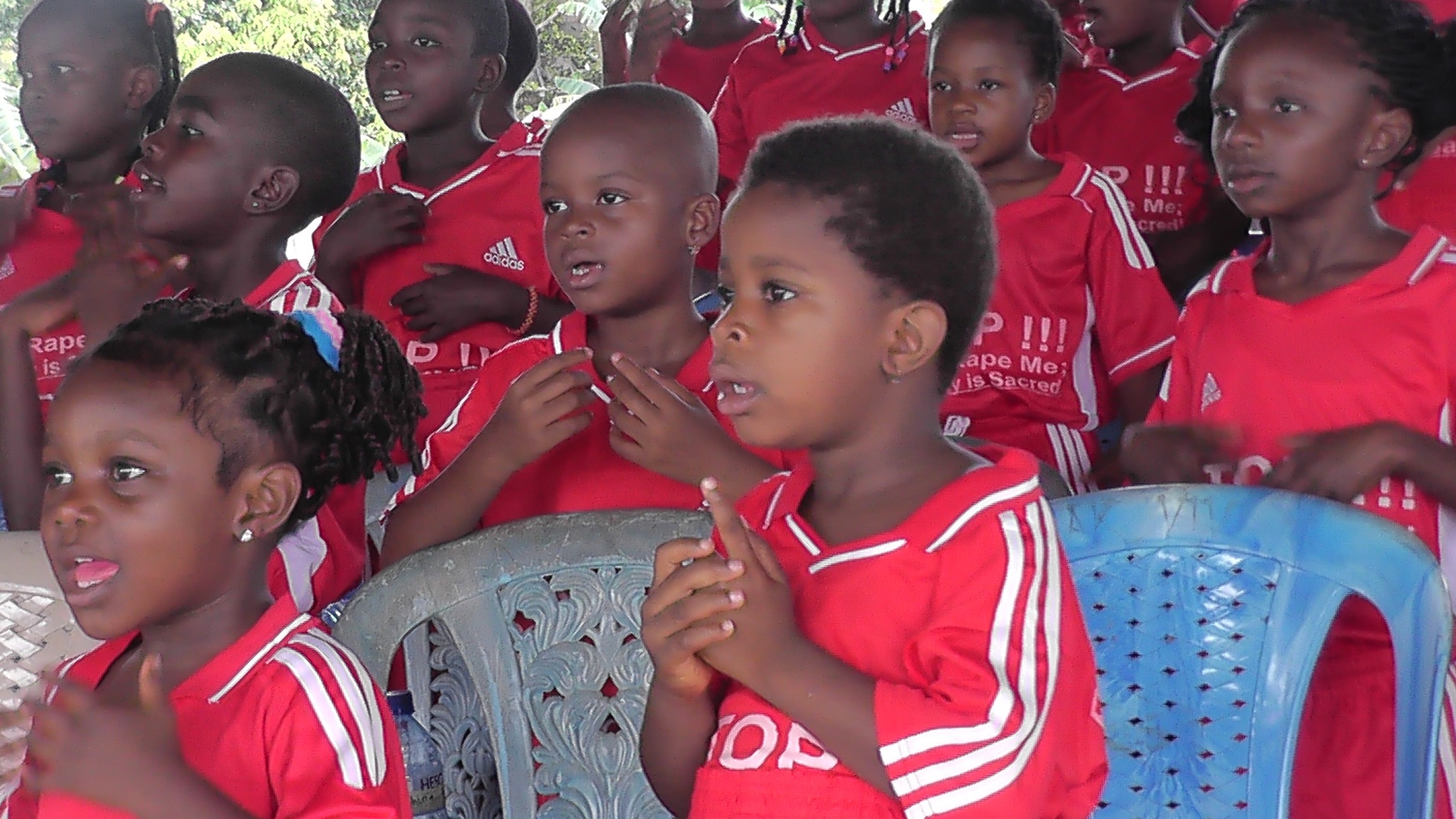
Mission
Global Pearls’ mission is to reduce suffering and foster hope among marginalized populations in developing countries by empowering changemakers from within.
Life Challenges of the Women Served
Cameroon has a high incidence of gender-based violence (GBV), but the COVID-19 pandemic and socio-political Anglophone crisis (ongoing civil war) are causing rates to skyrocket. No female is safe, with rape escalating among victims as young as infants and as old as 100-year-old women. Children are particularly vulnerable. They do not know how to protect themselves, they do not understand what is happening to them, and they are afraid to speak about their experience. They are left with feelings of intense shame and fear, and they bury the pain, which can cause problems in school and in future relationships of all kinds.
The COVID-19 pandemic has caused this violence to escalate. Many men lost their formal jobs due to pandemic shutdowns, so women must work longer hours in the informal markets to keep the family fed. Schools were closed, children unsupervised, and men idle.
The Anglophone crisis displaced more than 400,000 people who escaped their village communities and relocated outside rebel-controlled territories. These Internally Displaced Persons (IDPs) had only known agriculture and were unprepared for town settings, so they struggle to survive. Many young girls have resorted to prostitution. Also, the huge influx of impoverished IDPs means many families are sharing cramped houses where people of varying ages and from different families share the same room to sleep. Parents are often away from the home for long hours struggling to earn an income. This leaves children very vulnerable to abuse.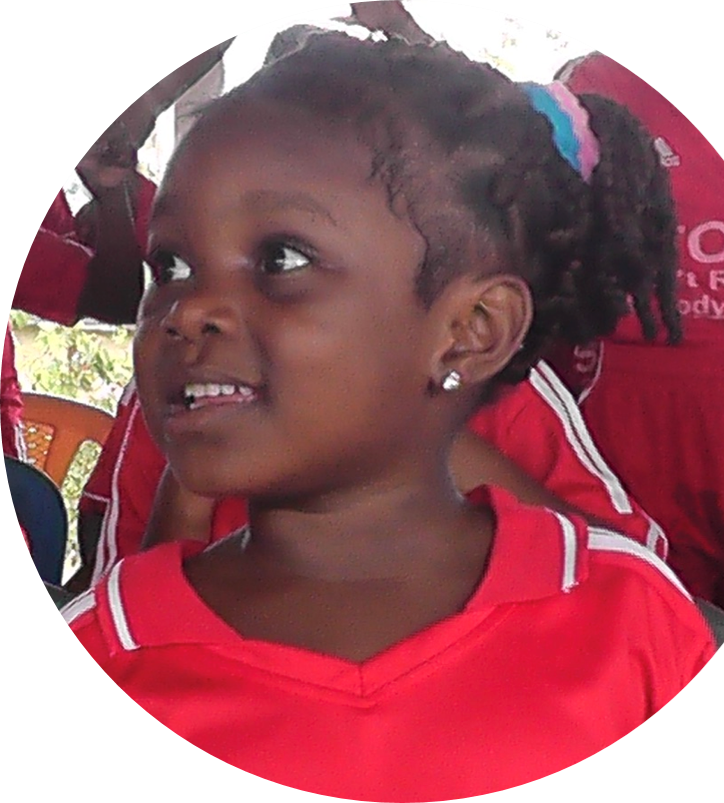
All women in Cameroon are affected either directly or indirectly by GBV. In the Oroko culture, men universally believe and openly state that women will not understand that they are loved if they are not beaten, so a man must beat his wife to demonstrate his love. For instance, one man used to tie up his wife and beat her close to death. This went on for years until she finally fled. In another instance, a group of men broke into the rented room and violently beat and gang-raped a woman for several hours before leaving her for dead. She spent a month in the hospital, and, though she was a rare woman who reported the incident to the police, they refused to investigate. Men are simply not held accountable.
According to the UN Global Database on Violence against Women (and prior to the pandemic), 51 percent of women ages 15 – 49 in Cameroon have experienced intimate partner physical and/or sexual violence, and 33 percent did so within the previous 12 months of being surveyed (2015). Five percent of women experienced sexual violence perpetrated by someone other than an intimate partner (2012).
These statistics are likely understated, because it is extremely rare for a woman to report her experience of rape and physical abuse – particularly when she is a child. The World Health Organization notes that about 13 percent of school-going children in sub-Saharan Africa are sexually abused. In Cameroon, watchdog organizations say the figure is more like 40 percent. The greatest concern is the high and growing incidence of child rape. There are endless stories, but few useful statistics, since women and girls do not report rape or abuse even to their parents, let alone to the authorities.
The Project
Global Pearls’ (GP) primary goal is to change the culture of GBV in Cameroon and specifically that of child rape – which aligns perfectly with Together Women Rises’ goal of achieving gender equality. GP wants to challenge the notion that it is acceptable for men to sexually violate children and foster open discussions in the community on this topic. They also want to shift the culture of shame from the child victim to the perpetrator. In so doing, GP wants child victims/survivors to be able to speak to someone about their experiences without fear of being victimized all over again by peers and the community. GP is opening a discussion with them that Cameroonian parents have never found comfortable to discuss with their children.
Using traditional Cameroonian sports and songs, Global Pearls’ Child Rape Prevention Camps will impart important lessons about rape and allows girls to tell their stories and become ambassadors in their communities. Over the course of two years, GP will train 400 children in rape prevention and advocacy and establish at least 10 Girls Against Rape Clubs in local schools. They will broadcast what they are doing over local TV and radio to generate open discussion in the broader community.
For girls who are rape survivors, GP helps lift the shame they carry, teaches them how to speak out, and restores their self-confidence. GP also gives these girls the tools to recognize and avoid dangerous situations and empowers them to protect themselves and others from rape. In the process, they become respected leaders and confidants in their schools and communities.
Global Pearls’ objectives are to:
- Protect girls from rape by teaching them how to avoid dangerous situations and what to do if they are faced with a potential rape,
- Bring healing to child rape victims by removing their shame and giving them a chance to talk with someone about their experiences,
- Impact a much larger group of girls/women by extending the messages to the broader community through media coverage,
- Begin a transformation of the culture by openly discussing rape and calling it the crime that it is, and
- Extend reach through the creation of Girls Against Rape Clubs in secondary schools.
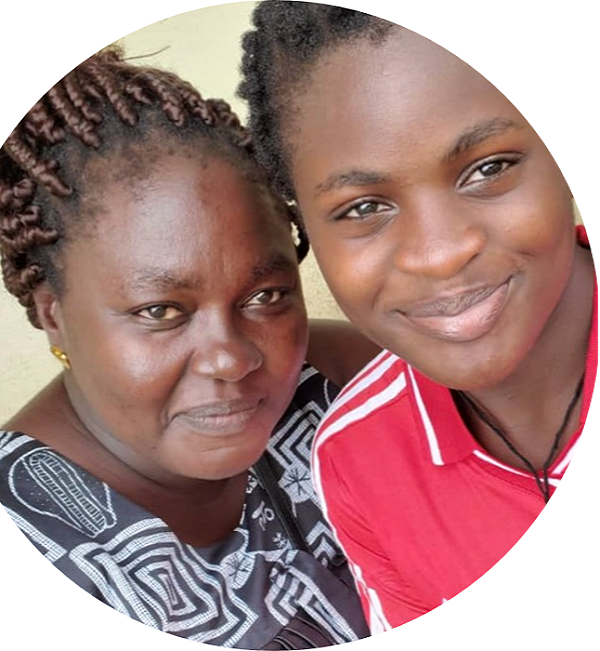 Here’s how the program will work:
Here’s how the program will work:
Four hundred children (200 per year) ages 5 – 15 will receive training in GP’s Child Rape Camps and will become ambassadors in their communities. (There will be 50 children at each of 8 camps, for a total of 400 direct beneficiaries.) GP’s strategy is to bring 50 children at a time into child-friendly spaces where survivors, experts, and social workers will educate them on their bodies, how to avoid rape, and what to do in the event they are caught up in a rape situation. These child “ambassadors” will also learn how to advocate for other children who have been raped or are in danger. The camps will be held in August and September and will include nutritious food.
GP will use/revive traditional African sports and games (which modern children have not experienced) to create a fun environment, develop trust and team spirit, and put the children in a relaxed state of mind that fosters learning and sharing. These participants will include classmates, friends and neighbors.
All participants will wear red sports outfits bearing a statement against rape. These outfits make the girls feel special, and they wear them proudly outside the camp. This uniform identifies them as camp participants and lets their peers know they are “safe” people to talk to if they are being victimized. Often, the girls in their red outfits are the only individuals that child rape victims are comfortable approaching. Children typically will not tell an adult when they have been raped, nor will they tell friends for fear they will be shamed. But GP has found that these ambassadors are trusted. Children turn to them to share the burden of their rape experiences.
For example, a teenage girl in GP’s pilot camp walked out of the teachings and was found outside sobbing. She explained that she had been raped by a cousin at age 5 and had not told anyone. Another 7-year-old girl explained that girls don’t want to tell anyone when they are raped because they fear they will be blamed. Were these incidents advertised in their schools, the girls would be shamed.
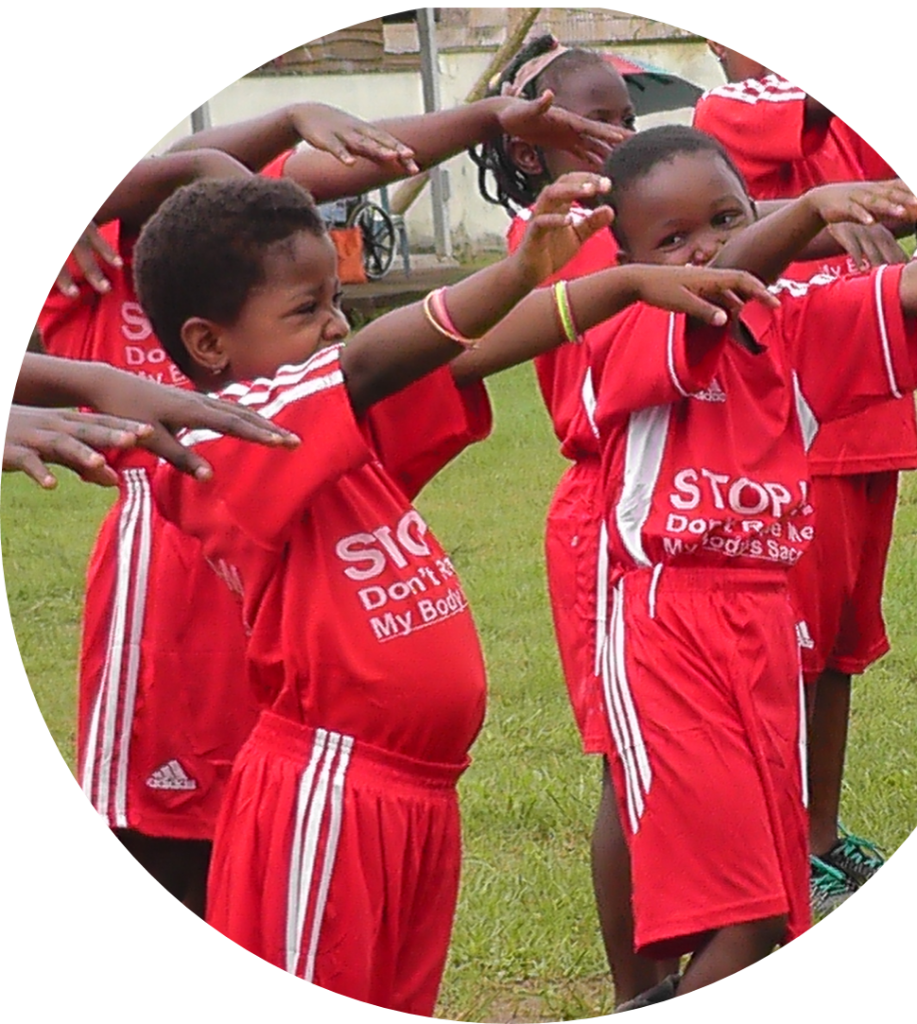 GP will work with school officials to create ten Girls Against Rape (GAR) clubs at secondary schools. Each club will have approximately 50 students, for a total of 500 students in GAR Clubs. After the intensive, week-long camps end, GP will help the girls start GAR Clubs in schools throughout Kumba. This was not originally the plan, but the older girls in the camps were eager to start and run these clubs and asked for GP’s support. GP thought it was a wonderful idea, so supporting these clubs will be part of the program moving forward. These clubs will not only extend the lessons to more school children, but they will create an ongoing, supportive social group so girls will not need to navigate the dangers of childhood alone. These clubs are also creating a group of powerful girl leaders who will stand against rape and be important voices against GBV.
GP will work with school officials to create ten Girls Against Rape (GAR) clubs at secondary schools. Each club will have approximately 50 students, for a total of 500 students in GAR Clubs. After the intensive, week-long camps end, GP will help the girls start GAR Clubs in schools throughout Kumba. This was not originally the plan, but the older girls in the camps were eager to start and run these clubs and asked for GP’s support. GP thought it was a wonderful idea, so supporting these clubs will be part of the program moving forward. These clubs will not only extend the lessons to more school children, but they will create an ongoing, supportive social group so girls will not need to navigate the dangers of childhood alone. These clubs are also creating a group of powerful girl leaders who will stand against rape and be important voices against GBV.
To extend the lessons to the broader community, each camp will have a media budget. During a pilot camp, Nakinti Nofuru and the children were interviewed and appeared on the local TV station as well as radio. The community of Kumba was in awe. People were excited and talking about it all over town. This also allows many women who were themselves victims as children to hear about GP’s work, and the open discussion is lifting shame they have carried silently for years. Thousands of people in Kumba have already been exposed to the topic through our media efforts.
GP’s hope is that it will not just be women who are affected. Cameroon has been so indoctrinated by a culture of GBV that boys grow into men honestly believing that violence against women is not only their right, but their obligation. Talking openly in the broader community about this taboo subject and the legal rights of women is creating a real stir. GP believes it will impact the views men and boys have about GBV and influence their behavior.
Demand is high for this program. Since the pilot camp was limited to 50 girls, GP deliberately limited advertising. They announced it briefly on the radio and in a few churches, and then it was first-come-first-served. Many parents/girls were disappointed when the camps filled up. Some even came to the camp the first day and begged to let their children just sit and watch, and despite their great poverty, they even offered to give GP money to let their children observe. GP even had boys turn up hoping to participate, but they had to turn them away too.
For the Together Women Rise camps, GP will again make it first-come-first-served. However, since more camps will be offered, they should not have to turn away so many children. GP does not require that the participants be rape victims, because that would mean children would have to admit their experiences when they are not ready to do so. And proactively stopping rape and changing a culture of rape is as important to GP as fostering healing after the fact. Training “ambassadors” who will be bold in helping others does not require the children to first be victims themselves.
This project is designed and run by Rescue Women Cameroon (REWOCAM), GP’s implementing partner in Cameroon. All REWOCAM staff and volunteers are Cameroonian women, victims themselves of GBV. The collaboration between REWOCAM and Global Pearls has had enormous benefits for both parties. REWOCAM has the expertise on local culture and GBV issues, and GP provides strategic planning, mentorship, and access to funding.
GP hopes to continue this project for as long as funds allow. If success is shown over the next two years, GP believes they will be able to attract additional donors to help keep the program going. And, while the camps are important initially to train the child ambassadors, with enough girls trained, the school GAR clubs (which are much less expensive to run) will be able to take on the primary responsibility for disseminating the teachings of the camps.
GP’s initial focus is on raising up a generation of girls in the Kumba area to combat child rape and the prevailing cultural attitudes. But their long-term vision is much broader. They intend to take what they learn and train others across Cameroon and Africa to extend this program to a much larger geographic area.
To impact other areas of Cameroon, GP intends to conduct one rape conference each year. This will bring together women from across Cameroon who have a passionate desire to address the issue of rape. During these conferences, GP will train the participants on how to run the camps and establish GAR Clubs in schools in their areas. Participants will be required to report on the number of camps they conduct, the number of camp participants, and the number of GAR Clubs they help establish so GP can keep track of the larger impact. GP already received funding to conduct their first rape conference at the end of January 2021.
Year 1: 200 direct beneficiaries – approximately 500 indirect beneficiaries (school children) plus thousands through media coverage
Year 2: 200 direct beneficiaries – approximately 500 indirect beneficiaries (school children) plus thousands through media coverage
UN Sustainable Development Goals
![]()
![]()
Questions for Discussion
- How might male-female relationships change after a woman has been able to share her story of GBV?
- Why do you think there was overwhelming demand for this program, even from boys?
- How and why do you think a community comes to accept rape and GBV as “normal”?
How the Grant Will be Used
Over two years, Together Women Rise’s grant of $30,000 will help fund 8 one-week Child Rape Prevention Camps for girls ages 5-15, plus media coverage and support for 10 Girls Against Rape clubs in secondary schools:
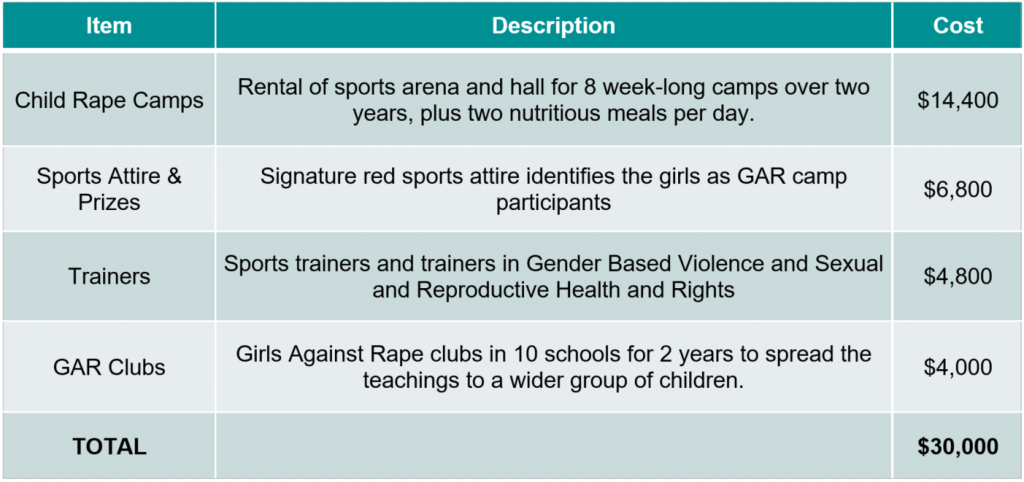
Why We Love This Project/Organization
Global Pearls, in collaboration with its partner, Rescue Women Cameroon (REWOCAM), is addressing the serious issue of GBV, particularly child rape, in Kumba, Cameroon. The ongoing Anglophone crisis and the COVID-19 pandemic have created pressures in Cameroon that make this project urgent and timely. We love this project because of its focus on building the leadership skills, knowledge base, healing, and confidence of young girls. By expanding the project to the larger community, this project seeks to propel women and girls as leaders who bring about cultural change to their schools and communities.
Evidence of Success
Global Pearls began partnering with REWOCAM’s Nakinti Nofuru in mid-2016. At first, REWOCAM simply funded girls’ scholarships. But soon, they realized girls needed additional support to overcome the cultural and financial barriers to educational success, so they added Girls Lead Clubs in two secondary schools in the Ndian Region. In the clubs, girls eagerly learned about issues like menstruation and human rights, sexual and reproductive health rights, leadership and public speaking, as well as receiving training in income earning skills, like how to make soap or popular food items. The clubs were quite popular, and girls walked up to six miles one-way to attend each month. The income generating skills were greatly valued. One girl, for example, started making and selling doughnuts in local villages to earn her school fees – a skill she learned in the club.
Maternal mortality was a particularly troublesome issue in that region because the only birthing aid that women had access to was traditional midwives who had no medical training. The worst villages had an estimated one death for every 15 pregnancies, so GP began a pilot project to train traditional midwives on the primary causes of death during pregnancy/delivery, how to recognize and treat them, and when to refer women to a distant health clinic in case of emergency. In the six months after GP’s training, there wasn’t a single maternal death in the pilot villages.
Sadly, in the spring of 2018 the region erupted in war, and the villagers fled deeper into the jungle or worked their way to towns like Kumba outside the rebel zones. GP had to shift the geographic location of its work and they could not continue to monitor the impact of the projects.
For the remainder of 2018 and the first half of 2019, GP’s efforts were focused on responding to the humanitarian crisis caused by the war, getting emergency food and medicine to desperate villagers, and aiding young female IDPs to help them avoid/escape the sex industry.
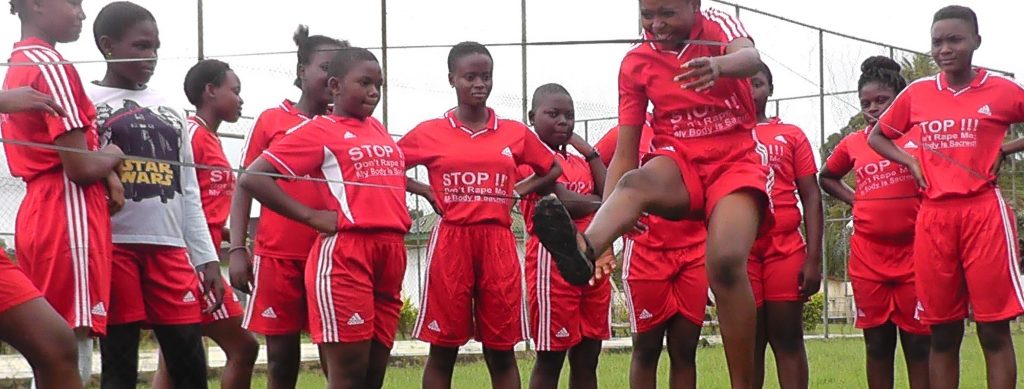
By the second half of 2019 GP was able to return to more formal projects. Nakinti Nofuru was chosen by the U.S. Embassy to lead a consortium of organizations that conducted a week-long conference to develop the leadership skills of women from across Cameroon. Within six months of the conference, of the 50 women who attended, nine had become involved in social activism fighting GBV, and one of these was chosen to represent Cameroon in 2020 as part of the 300 “Women Deliver Young Leaders” cohort. Seven other participants started and were running their own businesses, and ten more chose to pursue public service.
REWOCAM also trained 30 IDP women to serve as community mobilizers. Their responsibility was to identify other IDP women and connect them with governmental and non-governmental organizations that offered humanitarian support for IDPs. More than 60 women were connected with support services as a result, although GP suspects the true number is much higher. Many of the women trained did not have access to phones/Facebook/WhatsApp to communicate back to GP the impact of their work.
Nakinti Nofuru has received much recognition for her work:
2016 and 2017: Chosen as a World Pulse Impact Leader in recognition of the impact she has had improving the lives of women.
2017: Received the “Women Have Wings” award, given to women “of extraordinary courage and action.”
2018: Chosen by the U.S. Embassy to represent Cameroon at a “Women in Leadership” conference held in the United States.
2019: Chosen by the U.S. Embassy to organize and run a conference for young women from across Cameroon to strengthen their leadership capacities.
Voices of the Girls
“I was raped by my cousin a long time ago. I was afraid to speak out. After listening to the lectures, I feel so guilty. I feel like I did myself and my community a big injustice by not speaking out. At this point, I want to open my own Organization in future to fight against rape. Rape is evil.”
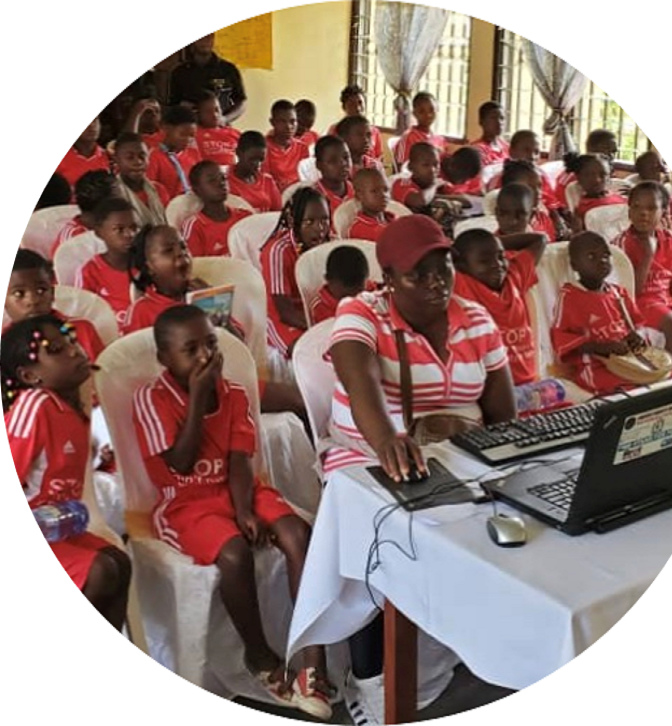 “I want to thank REWOCAM for the rape camp. GAR club has opened my eyes to possible perpetrators in my neighborhood. I am thinking of a boy who looks at me in a funny way and will usually follows me when my parents send me out to buy things from a store. With the lectures from the camp, I hardly go out alone, I will always go out in the company of other people. I told my friends about the lectures from the camp and they also complained about this same boy. Together with my friends, we reported to our parents and the Police were called to intervene. He was interrogated and warned to desist from harassing girls.”
“I want to thank REWOCAM for the rape camp. GAR club has opened my eyes to possible perpetrators in my neighborhood. I am thinking of a boy who looks at me in a funny way and will usually follows me when my parents send me out to buy things from a store. With the lectures from the camp, I hardly go out alone, I will always go out in the company of other people. I told my friends about the lectures from the camp and they also complained about this same boy. Together with my friends, we reported to our parents and the Police were called to intervene. He was interrogated and warned to desist from harassing girls.”
“I am so happy that I can now identify the stranger safety rules, the safe and unsafe touch and also identify people that are good enough to belong in my safety network. This is very important for me and I am very grateful.”
“A friend who attended the rape camp told me so many things about it in school. I really wanted to be a part of the monthly club and I urged my parents to go register me at REWOCAM office. Thank God, I was accepted to attend the monthly clubs. I will use this knowledge to educate my friend in Yaoundé whom I used to blame that her mode of dressing was the reason why she was raped. I will also apologize to her and also assure her that it was never her fault. I wish she was able to attend the club and listen to the lectures herself.”
“Apart of the lectures, one of the best things I enjoyed about the camps was the sports and games. I never knew that there were such beautiful sports and games that existed many years ago. Every day, I kept anticipating to go to the playground just so I can learn something new and also play with my new friends.”
About the Organization
Global Pearls was established in 2016 by three women – Lisa Robinson-Spader, LeeMin Chong, and Arlene Say Soto. These women believed there was a better, more effective way to accomplish international development work: by empowering outstanding locals from the outset.
REWOCAM, GP’s implementing partner, was founded in 2013 by Nakinti Nofuru and other dynamic, solutions-oriented Cameroonian women who were fed up with the deeply ingrained culture of violence against women. Their passion is to address the many forms of injustices that are perpetrated against Cameroonian women by creating a collective movement that uses media and gatherings to unite their voices. Nakinti has a master’s degree in Women and Gender Studies and worked as a journalist with Global Press Journal, researching and writing on GBV topics. She is currently the Divisional Delegate of the Ministry of Women’s Empowerment in Cameroon. She also is a World Pulse Ambassador, and this extends her a voice across the globe.
GP selects outstanding individuals from impoverished communities who are resourceful, well-connected, and passionate about improving life for marginalized populations in their communities. They mentor and help develop them to dramatically increase their impact.
GP has 12 partners in eight countries: Guatemala, Honduras, Peru, Morocco, Cameroon, Kenya, India, and Nepal. Since the goal is to empower local partners to pursue their own passions and not impose projects on them, GP’s projects are quite varied. GP works with street children, “untouchables,” and gangs, for example. Projects range from education to agriculture, maternal mortality to job creation. GP always focuses on the most marginalized populations that are outside the reach of other aid organizations.
GP helps partners develop long-term strategies to achieve their goals and spread their stories to attract funding, while also brainstorming with partners ways of achieving independence from foreign funding.
Where They Work
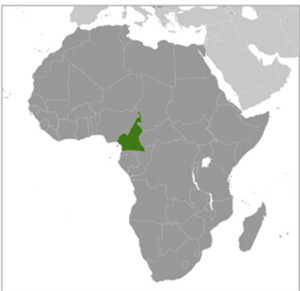
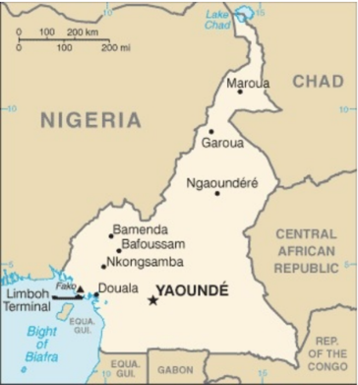
Cameroon is a country a little larger than California that lies at the junction of western and central Africa. It has an ethnically diverse population of 28.5 million that is among the most urban in western Africa. More than 40 percent of the population is under 15 years old. The fertility rate is declining but remains high due to lack of access to contraception, especially among poor, rural, uneducated women. Less than 20 percent use contraception. Food insecurity exists due to natural disasters and a lack of infrastructure, as well as government corruption and mismanagement. Poverty is increasing, especially in rural areas. The majority work in agriculture.
Due to transportation issues stemming from challenging terrain and heavy rain in the south, the north has been isolated from the south. There is also a cultural division between the north and south. Sudanic and Arab inhabitants live in the north, where they migrate seasonally for grazing land, while the south is mostly agriculturists living in villages. The north is mostly Muslim, while those living in the south are Christian or practice traditional African religions. Sudanese is spoken in the north and Bantu is spoken in the south. In total, there are 24 languages spoken, although the official languages are French and English.
HIV/AIDS has been a serious health issue in Cameroon and is particularly widespread among young women. Other health concerns include malaria, dysentery, leprosy, and syphilis. The infant mortality rate is high compared to the rest of the world, but low for the region. Life expectancy is low at 55 years.
Cameroon has one of the highest rates of school attendance in Africa, and 77 percent are literate. However, access to education varies greatly by region. For instance, many girls do not attend school in the north.
A closer look at women helping women
The facts about GBV are staggering and profoundly sad. Globally, almost a third of women ages 15 and older have experienced intimate partner violence (IPV) or non-partner sexual violence – or both. Not surprisingly, violence against women disproportionately affects those in lower and middle-income countries. COVID-19 has exacerbated the situation further, as evidenced by the rate of calls to helplines increasing five-fold in some countries. Yet fewer than 40 percent of women who experience violence seek help, and only 10 percent report incidents to the police. Every day, 137 women are killed by a family member.
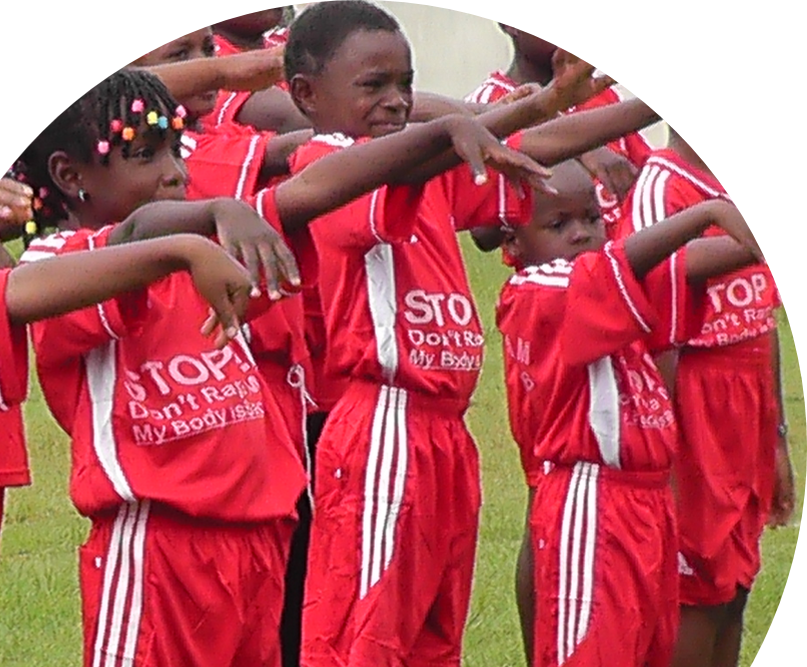 GBV is part of the culture in Cameroon. Many consider the privacy of the home to be the most dangerous place for a woman, since IPV is so commonplace and prevalent. According to the United National Office for the Coordination of Humanitarian Affairs, this violence is “the manifestation of the pervasive, systematic and structural discrimination girls and women face.” The lack of gender equality is evident throughout the social fabric of the country. For instance, while 39 percent of the total population lives below the poverty line, the rate is 51.5 percent for women. Gender inequality is present elsewhere as well – in education, healthcare, and employment.
GBV is part of the culture in Cameroon. Many consider the privacy of the home to be the most dangerous place for a woman, since IPV is so commonplace and prevalent. According to the United National Office for the Coordination of Humanitarian Affairs, this violence is “the manifestation of the pervasive, systematic and structural discrimination girls and women face.” The lack of gender equality is evident throughout the social fabric of the country. For instance, while 39 percent of the total population lives below the poverty line, the rate is 51.5 percent for women. Gender inequality is present elsewhere as well – in education, healthcare, and employment.
Combatting GBV requires an understanding of the underlying causes of these inequalities. It requires a commitment to raising women’s socio-economic standing and autonomy, such that they have a voice in decision making in their households. It is also about making boys and men accountable for their actions and challenging deep-seated norms that make violence acceptable.
Source Materials
https://reliefweb.int/report/cameroon/gender-based-violence-beyond-crises
https://www.unwomen.org/en/what-we-do/ending-violence-against-women/facts-and-figures
https://www.cia.gov/the-world-factbook/countries/cameroon/
https://www.britannica.com/place/Cameroon/People
